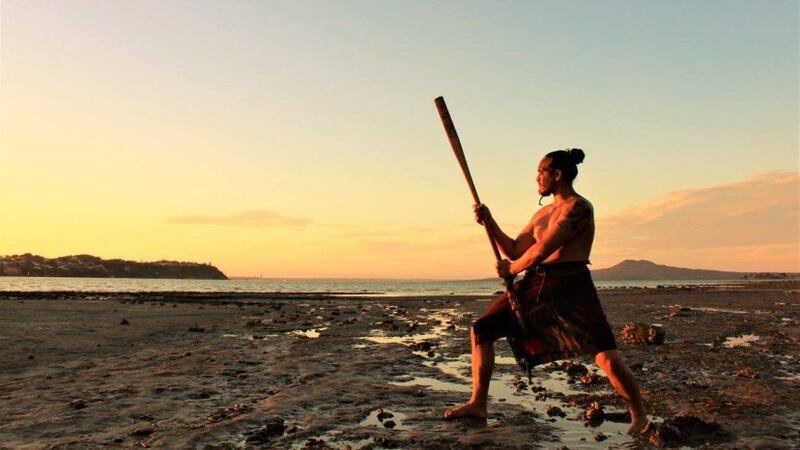A health and wellness programme created by a Māori whānau is making use of indigenous practices to help empower youth and prevent re-offending.
The Turongo Collective is run by Karena Koria, his wife Milly Grant-Koria and Puriri Koria, all from Rongowhakaata, Te Aitanga-ā-Māhaki and Ngāti Kohuru.
The three tutors have spent the last six months teaching up to 30 young people twice a week at the Korowai Manaaki Youth Justice Facility based in Manurewa, Auckland.
“From the first engagement with these rangatahi we’ve had massive feedback and response, not only from rangatahi but from the staff,” says co-director Karena.
During sessions, tutors share the importance of karakia, pepeha and whakawhanaungatanga.
"We explore those through martial arts, mau rākau, healing practices and therapy," says Karena, who has more than 20 years experience in martial arts.
He says every session is different from the rest.
“We read the space first before we start sharing anything. So depending on who turns up, we cater to their needs.”
Karena says there’s been a lot of response from staff saying the programmes have made a huge impact in terms of what choices young people are making.
Co-director Milly Grant-Koria says they help the young people who have offended several weeks after they leave the facility, “because one of the biggest problems is that when they leave, they go straight back into the gangs.”
Acting Team Leader of Operations at Korowai Manaaki Youth Justice Facility, Kaota Puna, says Turongo has helped the rangatahi grow a deeper meaning for their own cultural identity.
“The connection and growth to the rangatahi spiritually, being reconnected to their cultural identity, has [broken] barriers caused by their influence and immersion in youth gangs and the like.
“Through the training in haka our rangatahi have been able to express their emotions to a high degree yet be brought back to control these emotions, returning to calm,” says Mr Puna.
Puriri Koria, Karena Koria and Milly Grant-Koria started Turongo to explore deeper into performing arts and holistic practices. Source: Turongo Collective, Facebook
Karena says the family started the concept of Turongo several years ago after working at Te Oro music and arts centre in Glen Innes, Auckland.
“We wanted to explore deeper into the experiences we have which are martial arts, performing arts and holistic practices,” says Karena.
This year, the group plans to expand their programmes internationally starting with a workshop they led last weekend with university students from Canada.
"That was an awesome experience; just having that opportunity to share to people that are not from here, to give them a glimpse of indigenous practices," says Karena.
Karena Koria teaches Canadian university students the importance of karakia during a workshop last weekend. Source: Milly Grant-Koria.
Milly says Turongo is planning another collaboration this year with a youth justice programme based in Italy.
The programme facilitators in Italy have chosen to collaborate with Turongo because they believe the collective is “more efficient in anchoring spiritual wellness in youth offenders rather than teaching them fighting and stunts,” Milly says.

